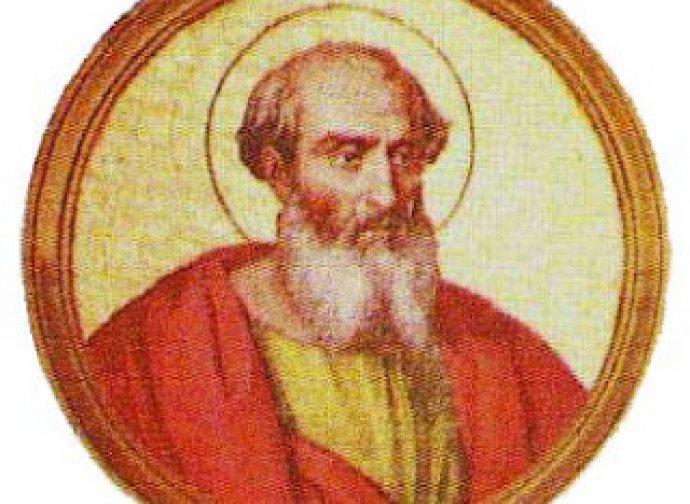Saint Pope Lucius I
Saint Lucius was elected to the papal throne in June 253 after the death in exile of Pope Cornelius, forced to leave Rome by the Emperor Trebonianus Gallus. It was a very difficult phase for the Church still a long way from obtaining freedom of worship, which would only come with the edicts of 311 and 313....

Saint Lucius was elected to the papal throne in June 253 after the death in exile of Pope Cornelius, forced to leave Rome by the Emperor Trebonianus Gallus. It was a very difficult phase for the Church still a long way from obtaining freedom of worship, which would only come with the edicts of 311 and 313. Cornelius' predecessor, Saint Fabian, had already died in prison among hardships under the persecution of Decius. Lucius himself was exiled immediately after his election as pope, but a few weeks later - probably when Valerian, who initially was not hostile to Christians, became emperor - he was allowed to return to Rome.
Saint Cyprian, bishop of Carthage and commemorated together with Saint Cornelius, rejoiced at the end of the ban against the pope and wrote a particularly significant epistle to Lucius: "Beloved brother, only a short time ago we offered you our congratulations when, in exalting you to leader of His Church, God graciously gave you the double glory of confessor [Christians who professed their faith in Christ, without yielding to persecution, ed.] and bishop. Once again we congratulate you, your companions and the whole congregation, because, thanks to the generous and powerful protection of our God, you have returned for His glory, so that the flock may once again have its shepherd, the ship its navigator, and the people someone to govern them and show them openly that the bishop was not expelled to be deprived of his Church, rather it was by God's will that the bishop was banished, so that he return there with greater authority”.
Saint Cyprian’s letter continues stating that the persecution had concerned only the true Church and true Christians. From that evil God had once again been able to draw a greater good, since "He tried to shame the heretics and reduce them to silence, so as to show where the true Church was, who was its bishop chosen by the grace of God, who were its presbyters in communion with the bishop in the glory of the priesthood, who were the true people of Christ, united in His flock by a special love, who were those oppressed by enemies and at the same time who were those protected by Satan as his own".
This happened during the ongoing schism of Novation, who had self-proclaimed himself pope in opposition to the legitimate Pontiff Cornelius, claiming a heresy, i.e. that the Church could not forgive those who had sacrificed to the gods during the persecutions, the so-called lapsi. Instead Cornelius, in agreement with Cyprian, was for readmitting to Communion, after a just penance, believers who sincerely repented of not bearing witness to Christ. Lucius operated on the same principle of forgiveness, following the necessary penance. After eight months of pontificate he died at the beginning of March 254 (as a martyr, as had Cornelius, according to the testimony of Saint Cyprian in a letter to the new Pope, Saint Stephen I: "... servandus est enim antecessorum nostrorum beatorum martyrum Cornelii et Lucii honor gloriosus", wrote the bishop of Carthage). He was buried in the Catacombs of Saint Callistus.
